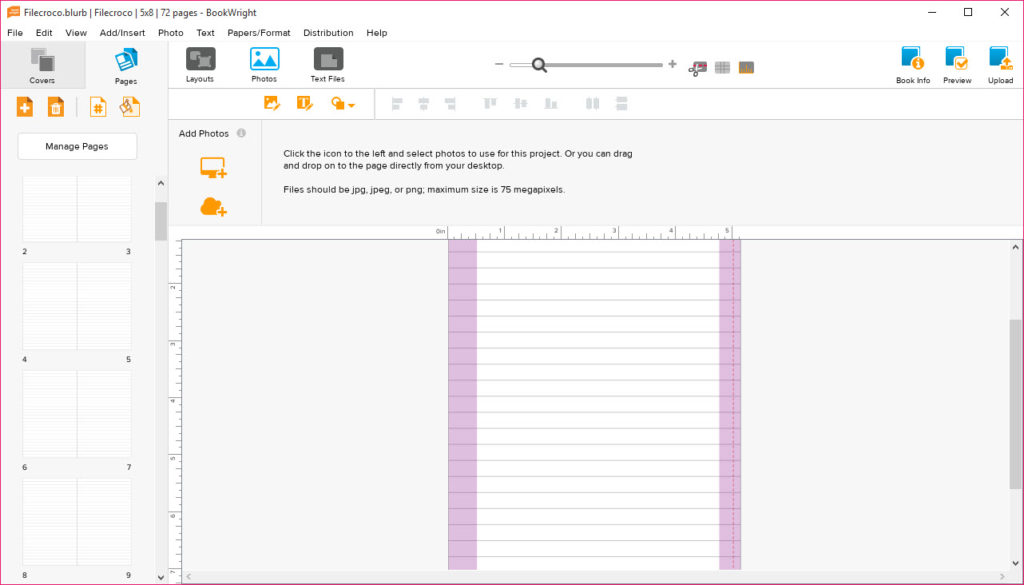

The problem with counting "books" is that the term is used in so many different ways, that one might end up with estimates that differ by several magnitudes depending how narrow or wide a definition or charactierization one adopts.
Bookwright wik registration#
In other cases, the ISBN registration service is provided by organisations such as bibliographic data providers that are not government funded. Some ISBN registration agencies are based in national libraries or within ministries of culture and thus may receive direct funding from the government to support their services. The ranges of ISBNs assigned to any particular country are based on the publishing profile of the country concerned, and so the ranges will vary depending on the number of books and the number, type, and size of publishers that are active. ISBN issuance is country-specific, in that ISBNs are issued by the ISBN registration agency that is responsible for that country or territory regardless of the publication language. For example, an e-book, a paperback and a hardcover edition of the same book will each have a different ISBN.Īdditionally, there is address fragmentation ISMB has blocks: * ALDI products have giant barcodes printed in several places on the packaging without the corresponding digits printed underneath the barcode: the scanner will never fail!Īn ISBN is assigned to each separate edition and variation (except reprintings) of a publication. * I have noticed that Sainsbury's (a major UK supermarket) has a system of 8-digit barcodes for its own products, but Tesco (another major supermarket) uses the standard 13-digit barcodes for its own products. At the very least you could have a check digit for each half and tell the human which half contains the mistake but of course you could do much better than that. Having the computer tell the human at the end "there's a mistake somewhere" would be no good at all. * A suitably designed 25-digit system would only take twice as long, or less than twice as long, to type in as the current 13-digit system, but the system would have to be suitably designed for that purpose. (Of course I am now inspired to watch more carefully next time it happens.) They could have a really clever interface connected to a real-time database of barcodes which recently failed to scan because I expect whole batches of a product have badly printed or crinkled packaging. I assume that in most cases they type all 13 digits but I haven't watched carefully.

* In a UK supermarket if the barcode won't scan someone has to type in the digits. Probably there will be a 14-digit system one day.) Of course the 12-digit system got incorporated into the 13-digit system. (Ironically, the U stands for "universal" while the E stands for "European". * ISBNs have now been incorporated into EANs (13 digits), which are used for all things sold by retailers, except in the USA and Canada, which, according to Wikipedia, use a system called UPC.

* When ISBNs were introduced in the 1960s people would have been typing and even handwriting them so keeping them short would have been important. * Rather than compute a hash you could just generate a random number: same risk of collision if done correctly (but different opportunities for making a mistake). I don't have an answer, but some possibly relevant points: That's definitely an interesting question, why they don't use a longer identifier without central/hierarchical allocation. Perhaps someone with more in depth publishing knowledge can color the risks better than I. How big of an issue is that? IANAExpert, but it seems like there are some nooks and crannies of IP law that can be swayed by owning the imprint, but little practical concern for the average person putting an ebook on Amazon e.g.
Bookwright wik free#
The other downside to these free (just about always) and discounted (sometimes) ISBNs is that they link the publisher as the service you got the ISBN through, rather than yourself, even if you're doing what would classically be considered a self-publishing job. There are deals to be had Amazon, for example, may give you a free ISBN for your ebook as long as you publish it using KDP, their walled-garden publishing system, but the gotcha is the ISBN is not portable/you're not permitted to use it for other editions outside of the Amazon system. It's $125 list price for a single ISBN, but there are bulk discounts buying direct and purchasing through a large scale supplier can make them as cheap as $10 each.


 0 kommentar(er)
0 kommentar(er)
